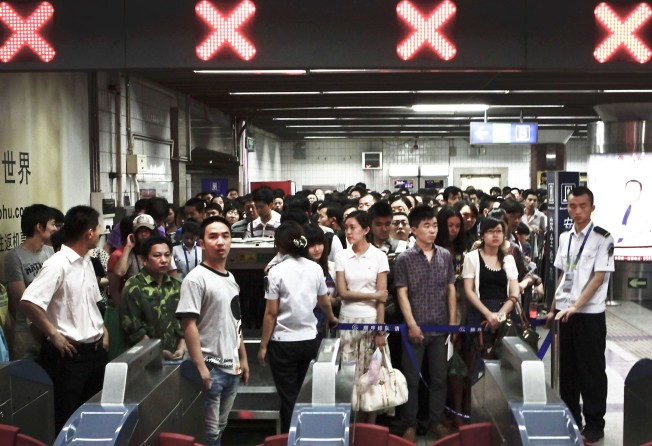Beijingers unhappy over fare rise plan
Subway authorities say scrapping flat fare will ease congestion during capital's rush hours

Beijing's announcement that it is considering scrapping the two yuan (HK$2.54) flat fare on its subway - the busiest in the country - has sparked controversy among the public.
The Beijing Subway was considering introducing a range of fares to ease peak-hour traffic, the municipal government said last weekend.
Raising the ticket price, adding a peak-hour charge or adopting distance-based pricing were among the options being considered, the Communist Party newspaper the People's Daily reported.
An online survey showed 60 per cent of people taking part were against the proposal, with many worried that distanced-based fares would add to their transport costs.
Transport authorities have blamed the low fare, which has been in place since 2007, for the large number of commuters travelling during peak hours.
The average number of passengers using the Beijing Subway each day, which has been growing at an annual rate of 30 per cent in recent years, surpassed 10 million in July, the newspaper said.
Passengers often have to queue simply to get into a station, then wait for several trains before being able to board one, where they "risk being flattened to the size of a picture", the newspaper said.
Many media reports and people posting online questioned if the government's plan was to cut the huge amount of subsidies given to the subway.
Each two-yuan ticket is almost entirely subsidised by the government, the People's Daily said. The Beijing government is estimated to be spending 18 billion yuan subsidising public transport this year.
The Beijing government is estimated to be spending 18 billion yuan subsidising public transportation this year, up from 15.7 billion yuan in 2011 and 17.5 billion yuan last year.
Ma Boyi, deputy chief of the Beijing Municipal Commission of Transport’s Transportation Administration, was quoted by the paper as saying that the government subway fare subsidies were meant to help ease traffic congestion.
In contrast to the increasing number of subway riders, the number of bus riders have declined, leaving Beijing’s bus transportation with commuter numbers of 13 million – which is four million under its capacity – the paper said.
An online survey showed 60 per cent of respondents were against the proposal, with many worried that distanced-based fares would add to their transportation costs.